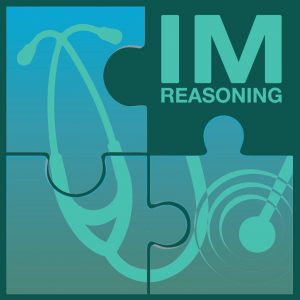Clinical reasoning
Sam meets some podcasting celebrities and experts in clinical reasoning Dr Art Nahill and Dr Nic Szecket – hosts of the podcast IM Reasoning. We talk cognitive bias and and some approaches to minimising their impact.
Common biases
- Confirmation bias
- T
- Anchoring
- The common human tendency to rely too heavily on the first piece of information offered (the “anchor”) when making decisions.
- Premature closure
- Failing to consider reasonable alternatives after an initial diagnosis is made.
- Affective biases
- Letting emotions, pre-conceptions, or stereotypes lead to assumptions that cloud the reasoning process e.g. drug users, chronic pain.
- Gambler’s fallacy
- T
- Posterior probability bias
- Letting recent or past events thats that are independent of the current case, impact on your estimated likelihood of a diagnosis.
- Ockham’s razor
- The simplest answer is more likely to be correct. Another way of saying it is that the more assumptions you have to make, the more unlikely an explanation is. Also, that a single diagnosis that explains the patient’s symptoms is more likely, than seperate diseases occurring concurrently.
- Hickam’s dictum
- The counter to Ockham’s razor. Patients can have as many diseases as they damn well please.

